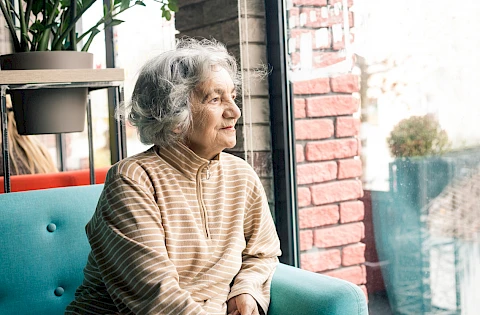
Sundowning is a term that many people may not be familiar with, but for families caring for a loved one with Alzheimer's or another form of dementia, it is a very real and challenging phenomenon to confront. Characterized by an increase in confusion and agitation during the late afternoon or evening, sundowning can be distressing for both seniors and their loved ones.
By recognizing the early signs of this syndrome and understanding its triggers, caregivers can implement strategies to manage these symptoms effectively.
What Is Sundowning?
Sundowning is a behavioral phenomenon often associated with Alzheimer's disease and other forms of dementia. It's a uniquely patterned syndrome where symptoms generally worsen during the late afternoons, evenings, and into the night.
Sundowning can manifest through various signs, with increased confusion and agitation being the most common. More specifically, the senior may seem disoriented, have trouble recognizing familiar people, places, or things, and may appear more nervous, restless, or upset as the day progresses into night. Some may also show physical symptoms like pacing or wandering. Recognizing these behavior changes can be the first step towards managing sundowning effectively.
Potential Triggers of Sundowning
Sundowning doesn't occur without reason. Environmental, physical, and emotional factors can all contribute to its onset. Things such as low lighting, increased shadows, or the transition from daytime to nighttime can all be environmental triggers.
Physically, the senior may be tired, hungry, or not feeling well. Emotional factors like stress, depression, or an over-stimulating environment can also bring on symptoms of sundowning. Identifying these triggers can provide a roadmap for preventative measures.
Practical Strategies for Managing Sundowning Symptoms
The key to managing sundowning symptoms lies in creating a routine and environment that minimizes agitation and confusion. A regular schedule, especially for meals and sleep, can provide a comforting sense of familiarity.
Keeping the environment calm and peaceful, reducing noise, and maintaining good lighting can also help. Encouraging physical activity during the day can lead to better sleep and reduce restlessness in the evening. Just ensure seniors talk to their healthcare providers before starting a new fitness routine. Limiting caffeine and sugar intake can also stabilize mood and ensure sound sleep.
How Senior Helpers New York City Can Help
Senior Helpers New York City is a team of skilled professionals who specialize in providing care for seniors, especially those living with dementia. Our team is trained to recognize and manage symptoms of sundowning, helping to improve the quality of life for seniors and bring peace of mind to their loved ones. We provide tailored care plans and use proven techniques to manage sundowning episodes, ensuring a safer and more comfortable environment for seniors at home.
Contact Us for Senior Care and Support Services
Recognizing and managing sundowning symptoms can significantly improve the quality of life for seniors and their caregivers. By being aware of the common signs, understanding the potential triggers, and implementing practical strategies, you can navigate the complexities of dementia care with more confidence and less stress.
If you live in New York City, Manhattan, Bronx, Brooklyn, and Queens and are seeking help with senior care services, contact us at Senior Helpers. Your loved one's comfort and safety are our top priority, and we're here to provide the support you need.